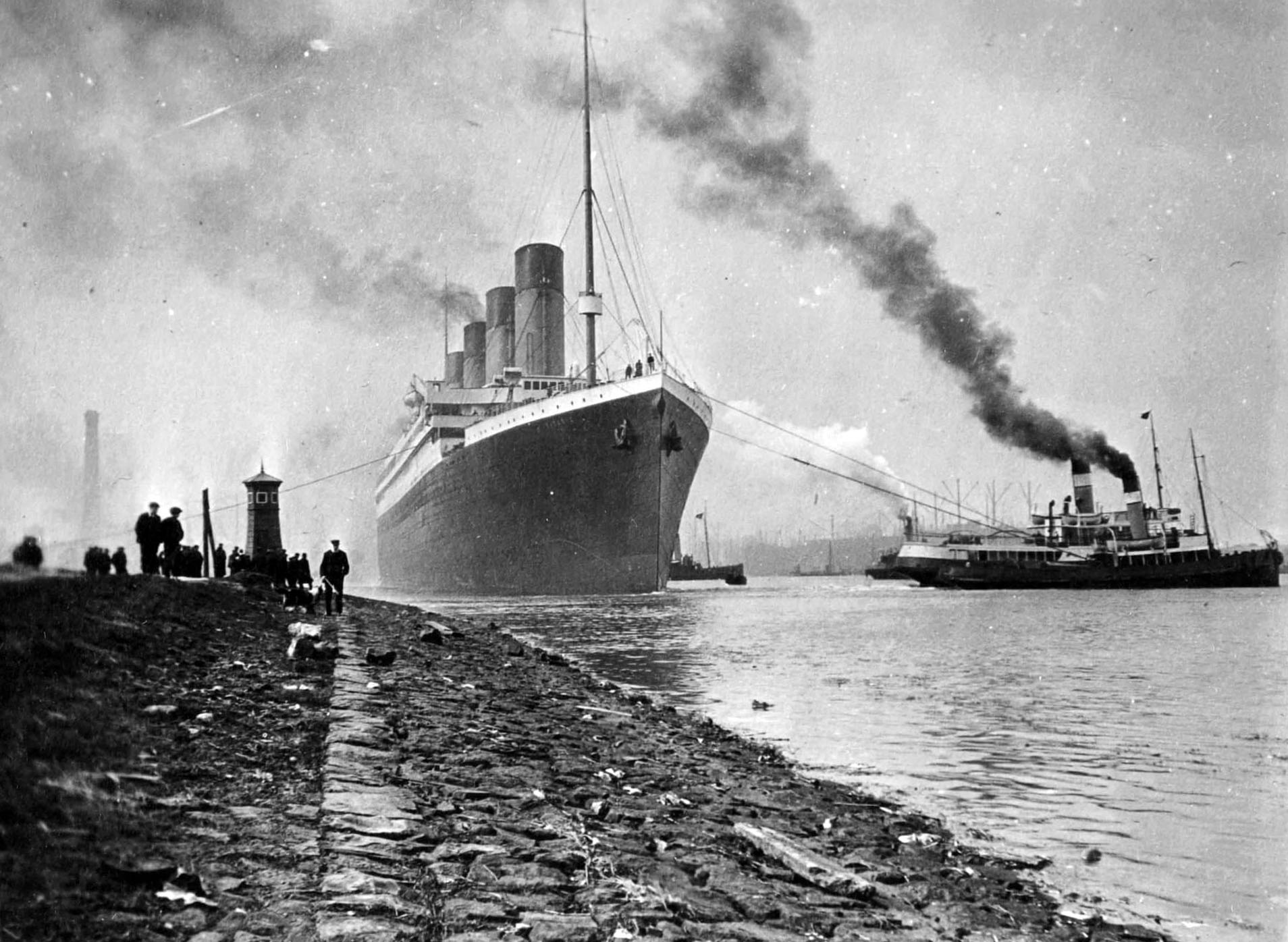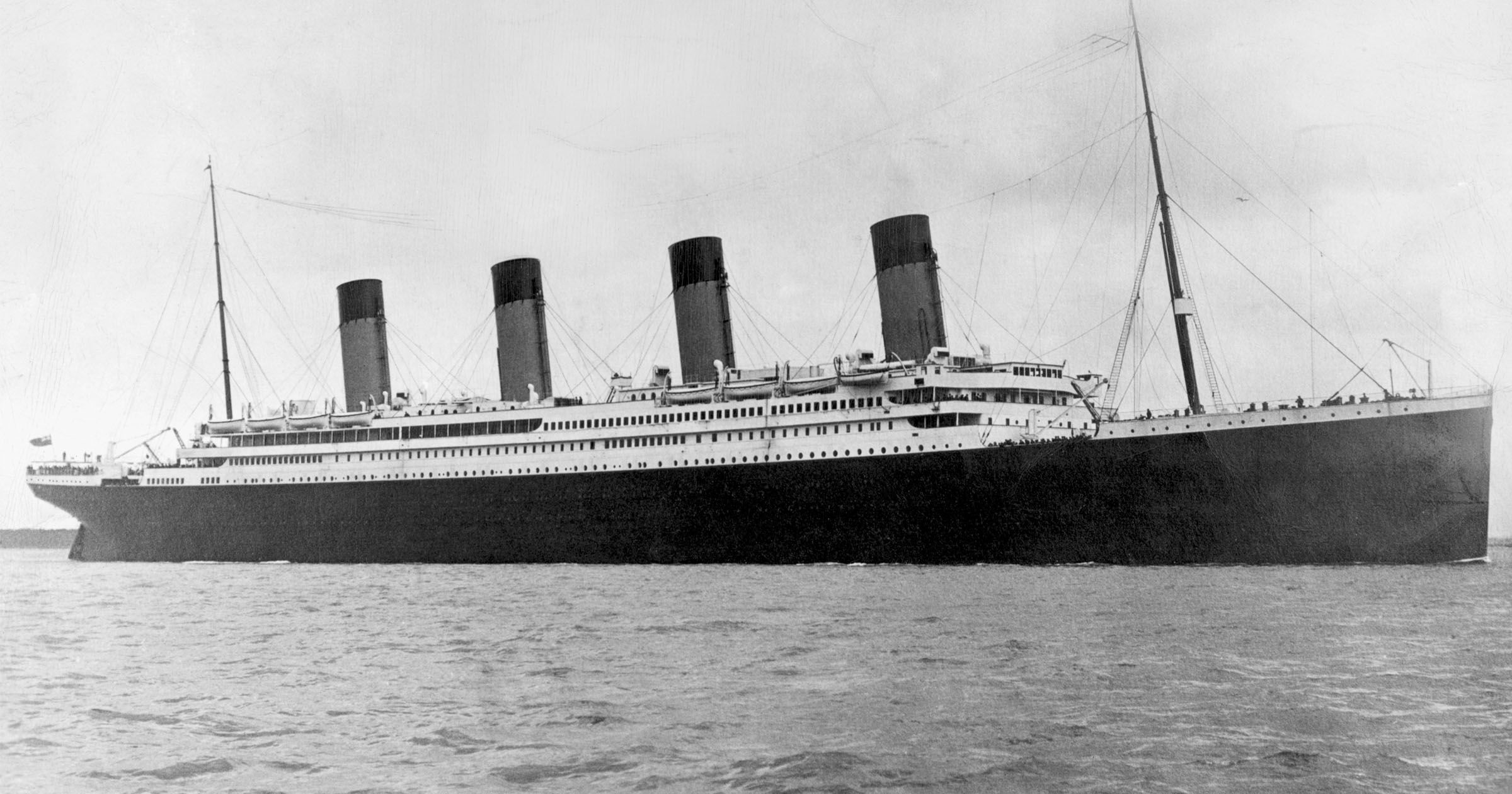A Picture Of A Titanic: A Journey Through History And Mystery
There’s something about the Titanic that captures our imagination like no other shipwreck in history. A picture of a Titanic is more than just an image—it’s a glimpse into a story of human ambition, tragedy, and resilience. This iconic vessel has been immortalized in countless books, movies, and documentaries, but have you ever wondered what makes its photographs so compelling?
Let’s dive right into it. The Titanic wasn’t just any ship; it was the pinnacle of engineering and luxury during its time. Back in 1912, when the Titanic set sail, the world was buzzing with excitement. People couldn’t get enough of this massive floating palace, and the pictures taken before its ill-fated voyage only added to the hype. But why do these images still fascinate us today?
Well, it’s not just about the ship itself. It’s about the stories behind the pictures—the people who boarded her, the dreams they carried, and the devastating reality that awaited them. Every photograph tells a tale, and the Titanic’s images are no exception. So, buckle up as we explore the history, significance, and mystery behind a picture of a Titanic.
- Arija Bareikis The Lithuanian Star Whorsquos Taking The World By Storm
- Ryan Shawhughes The Rising Star Whos Taking The World By Storm
Contents:
- Biography of the Titanic
- Why Pictures of the Titanic Matter
- A Brief History of the Titanic
- Types of Titanic Photos
- Restoration of Titanic Images
- Titanic Photo Collectors
- Modern-Day Titanic Photography
- Cultural Impact of Titanic Photos
- Photographic Techniques Used
- The Future of Titanic Imagery
Biography of the Titanic
Before we dive into the world of Titanic photography, let’s take a moment to understand the ship itself. The RMS Titanic was built by the White Star Line and launched in 1911. It was designed to be the largest and most luxurious passenger liner of its time. Below is a quick rundown of the Titanic’s vital stats:
| Property | Details |
|---|---|
| Length | 882 feet (269 meters) |
| Width | 92 feet (28 meters) |
| Weight | 46,328 gross register tons |
| Passenger Capacity | Up to 3,547 passengers and crew |
| Date of Sinking | April 15, 1912 |
Now that we’ve got the basics covered, let’s move on to the heart of the matter: why pictures of the Titanic are so important.
- Nude Beaches Pictures A Comprehensive Guide To Embracing Naturalism
- Maria Sharapova Legs The Story Behind The Iconic Tennis Stars Powerful Asset
Why Pictures of the Titanic Matter
Pictures of the Titanic serve as a bridge between the past and the present. They allow us to connect with an era that we may never fully understand. These images remind us of the grandeur of the Titanic, as well as the fragility of human life. But what exactly makes these photos so special?
Emotional Connection
For many, a picture of a Titanic is more than just a visual representation. It’s an emotional link to the people who were aboard the ship. Every photograph tells a story, whether it’s the smiling faces of passengers on deck or the haunting images of the ship’s wreckage. These pictures humanize the tragedy, making it feel more personal and relatable.
Historical Value
Beyond their emotional impact, Titanic photos also hold immense historical significance. They provide valuable insights into the design, construction, and operation of the ship. For historians and researchers, these images are invaluable resources that help piece together the Titanic’s story.
A Brief History of the Titanic
The Titanic’s story begins in Belfast, where it was constructed by Harland and Wolff. It was hailed as the “unsinkable ship,” a moniker that would tragically prove false. On April 10, 1912, the Titanic set sail from Southampton, England, bound for New York City. Just four days into its maiden voyage, disaster struck. The ship collided with an iceberg, leading to the deaths of over 1,500 passengers and crew.
But what happened next? The Titanic sank to the bottom of the Atlantic Ocean, where it lay undisturbed for decades. It wasn’t until 1985 that the wreckage was discovered by a team led by Robert Ballard. Since then, countless expeditions have been launched to explore and document the remains of the ship.
Types of Titanic Photos
When it comes to Titanic photography, there are several categories that you should be aware of:
- Pre-Sinking Photos: These are images taken before the Titanic’s tragic voyage. They often depict the ship’s grandeur and opulence.
- Wreckage Photos: These are pictures of the Titanic’s remains on the ocean floor. They offer a haunting glimpse into the aftermath of the disaster.
- Passenger Photos: These are portraits of the people who were aboard the Titanic. They help us connect with the human side of the tragedy.
- Recreation Photos: These are modern-day images that attempt to recreate the Titanic’s original appearance. They’re often used in films and documentaries.
Each type of photo provides a unique perspective on the Titanic’s story, and together, they paint a complete picture of this legendary ship.
Restoration of Titanic Images
Over the years, many Titanic photos have been restored to preserve their quality and historical significance. Restoration techniques have evolved significantly, thanks to advancements in digital technology. Today, experts can enhance faded images, repair damage, and even colorize black-and-white photographs.
But why bother restoring these images? Well, it’s all about preserving history. By restoring Titanic photos, we ensure that future generations can appreciate their beauty and significance. Plus, restored images often reveal details that were previously hidden or obscured.
Titanic Photo Collectors
There’s a whole community of collectors who are passionate about Titanic photography. These enthusiasts spend years gathering rare and unique images, often paying top dollar for original prints. But what drives their obsession?
For many collectors, it’s all about the connection to history. Owning a piece of the Titanic’s story is like holding a piece of the past in your hands. Some collectors focus on specific types of photos, such as passenger portraits or wreckage images, while others aim to build a comprehensive collection.
Modern-Day Titanic Photography
In recent years, modern technology has revolutionized the way we capture and document the Titanic. Submersibles equipped with high-definition cameras allow researchers to explore the wreckage in unprecedented detail. These expeditions have produced stunning images that capture the ship’s deterioration and the surrounding marine life.
But it’s not just about capturing images. Modern photography is also being used to create 3D models of the Titanic, allowing people to virtually explore the ship without ever setting foot underwater. These innovations are helping to keep the Titanic’s story alive for future generations.
Cultural Impact of Titanic Photos
The cultural impact of Titanic photos cannot be overstated. These images have inspired countless works of art, literature, and film. From James Cameron’s blockbuster movie to countless documentaries, the Titanic’s story continues to captivate audiences around the world.
But why do we remain so fascinated by the Titanic? Perhaps it’s because the story resonates on a personal level. We can all relate to the themes of ambition, tragedy, and survival. Titanic photos serve as a reminder of the human spirit’s resilience in the face of adversity.
Photographic Techniques Used
Back in 1912, photography was a relatively new technology. The Titanic’s original photos were captured using large-format cameras and glass plate negatives. These techniques required a great deal of skill and patience, as photographers had to carefully compose each shot and ensure proper exposure.
Today, photographers use advanced digital cameras and software to capture and edit images. While the technology has changed, the goal remains the same: to preserve the Titanic’s story for future generations.
The Future of Titanic Imagery
As the Titanic continues to deteriorate on the ocean floor, the need for documentation becomes more urgent. Future expeditions will likely focus on capturing as much detail as possible before the ship is lost forever. Advances in underwater photography and 3D modeling will play a key role in this effort.
But the future of Titanic imagery isn’t just about preserving the past. It’s also about inspiring the next generation of historians, researchers, and enthusiasts. By continuing to document and share the Titanic’s story, we ensure that its legacy lives on.
Kesimpulan
In conclusion, a picture of a Titanic is much more than just an image. It’s a window into the past, a testament to human ambition, and a reminder of the fragility of life. From its construction to its tragic sinking, the Titanic’s story continues to captivate audiences around the world.
We’ve explored the history, significance, and mystery behind Titanic photos, and we’ve seen how modern technology is helping to preserve this incredible story. But the journey doesn’t end here. As long as people remain fascinated by the Titanic, its images will continue to inspire and educate.
So, what’s next? Why not leave a comment below and share your thoughts on Titanic photography? Or maybe you’d like to check out some of the other articles on our site. Whatever you choose, remember that the Titanic’s story is one that deserves to be shared and celebrated.
Article Recommendations
- Louise Hobbs The Rising Star Whos Making Waves In The Industry
- Kathy Bates Partner The Untold Story Of Love Fame And Devotion



Detail Author:
- Name : Gaylord Kemmer
- Username : norma05
- Email : zella67@rohan.net
- Birthdate : 1987-09-10
- Address : 58245 Andrew Garden South Lawrence, ME 18396-1327
- Phone : 205-562-9505
- Company : Langworth-Shanahan
- Job : Floor Finisher
- Bio : Consequatur magnam omnis velit. Dolore nulla fuga dolorum velit nobis. Rerum ut ex aut blanditiis quidem est in quia.
Socials
facebook:
- url : https://facebook.com/octavia_jast
- username : octavia_jast
- bio : Corrupti voluptatum nesciunt eos id incidunt.
- followers : 4319
- following : 1987
twitter:
- url : https://twitter.com/ojast
- username : ojast
- bio : Provident maiores non molestiae ut unde. Velit nemo accusamus possimus commodi eligendi et hic vel. Eos voluptatem et labore veritatis odio.
- followers : 1734
- following : 2126